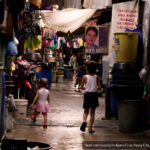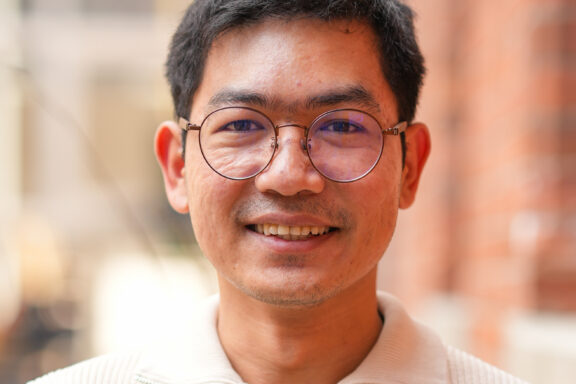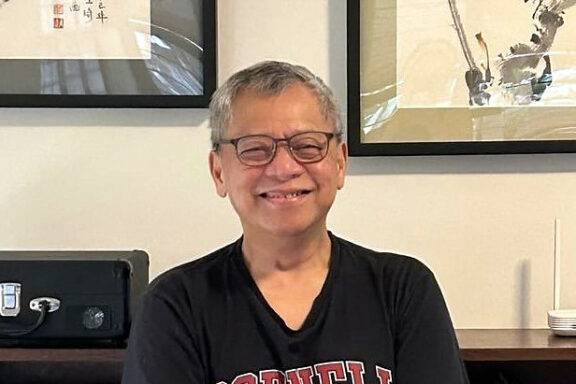Interview with Yunxi Wu
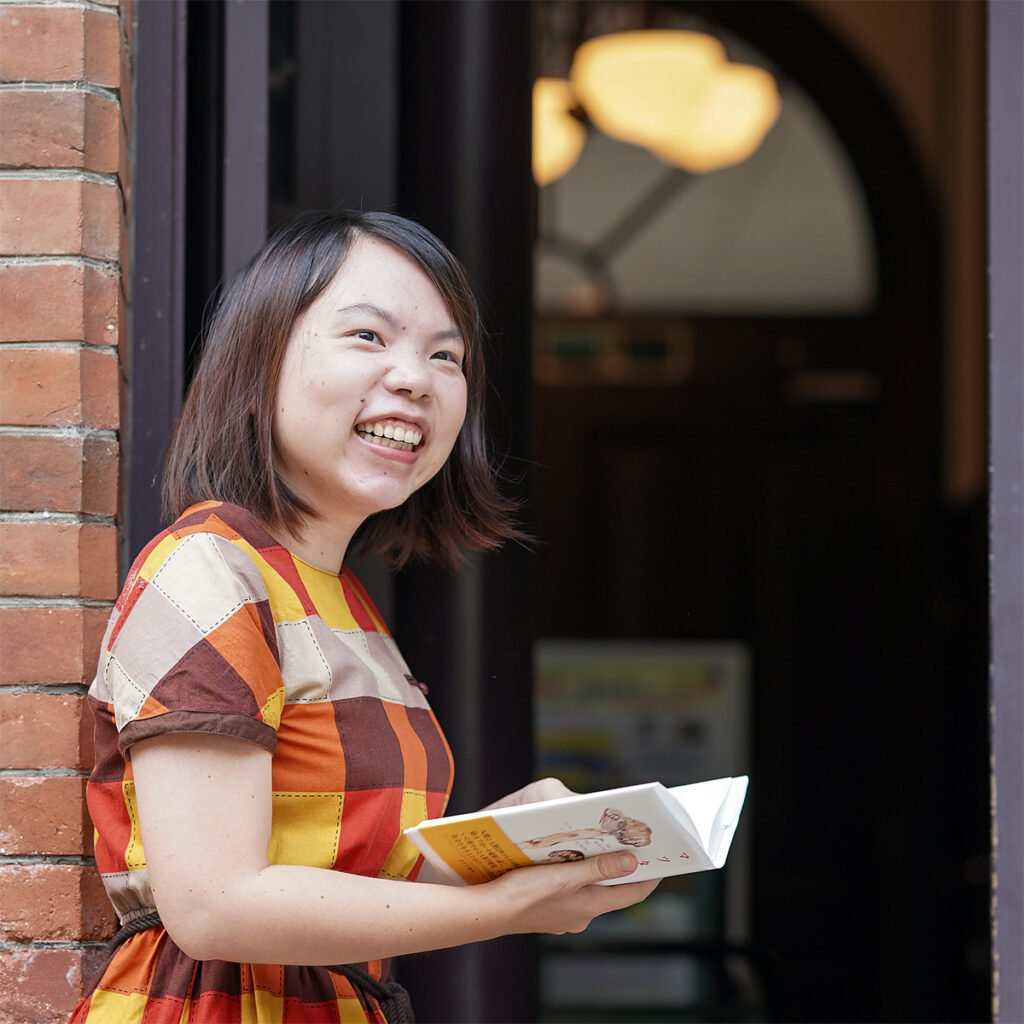
Short Bio
Wu Yunxi is an interdisciplinary geographer working on global agricultural studies, sustainable rural development, and transnational agricultural economics. She embarked on her academic journey at Sun Yat-sen University, earning a Bachelor of Arts with a minor in Tourism Planning and Management. Her quest for knowledge led her to the National Taiwan University, where she obtained a Master of Science from the Geography department. After that, she decided to further her studies at the Graduate School of Asian and African Area Studies (ASAFAS) at Kyoto University, receiving a Doctorate in Area Studies in 2022. The same year, she joined the Center for Southeast Asian Studies (CSEAS) at Kyoto University as a research fellow.
──Please tell us about your research.
My research centers on the effects of agricultural globalization on rural dynamics in the upland regions of Vietnam. In our contemporary era of globalization, agricultural commodity chains are undergoing a process of transnational restructuring, which is diversifying participants, forms of investment, and regional interactions. The dynamic landscape of transnational agribusiness, shaped by historical, socio-economic, and political changes, triggers interactions between initiator and recipient countries, persistently reshaping the structure of transnational commodity chains and exerting varied effects on the involved parties. I am particularly interested in the entrepreneurial journey of small- to medium-scale transnational agricultural investors in the agro-food sector in developing countries, which are often host to transnational agricultural investment. My research investigates bilateral and multilateral interactions among various stakeholders amid the evolution of the sector and the subsequent impacts on the societies and countries hosting transnational investments.
During my doctoral program, I undertook a meticulous investigation of the oolong tea industry brought to the underdeveloped upland regions of Vietnam by Taiwanese investors. At the heart of my research was an in-depth analysis of the multifaceted roles played by individual Taiwanese transnational investors—who were emblematic of small-scale foreign investment—in both their native and host nations. In probing the dynamics between Taiwanese investors and local stakeholders, I uncovered a symbiotic relationship. My findings also highlighted both the direct and nuanced indirect benefits and risks that FDI practices have on marginalized communities in resource-deprived regions. This research trajectory has galvanized my interest and commitment to more comprehensively analyze the profound potential of small- and medium-scale FDI activity. Recently, I have broadened my research scope to encompass Corporate Social Responsibility (CSR), local empowerment, global pesticide governance, and environmental sustainability. I pay particular attention to how rural societies hosting transnational investments navigate infrastructural challenges and enhance social welfare by forging symbiotic and interdependent relationships with foreign investors.
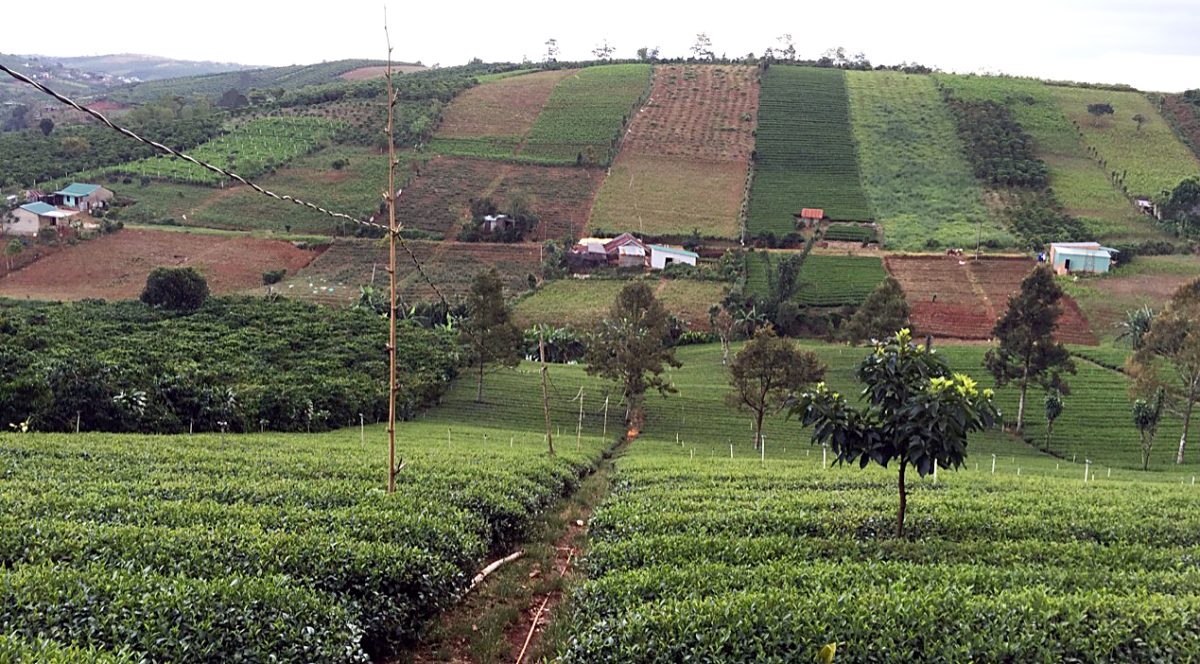
──Why did you choose to be a scholar and how did you decide on your current research topic and approach?
During my master’s program in Taiwan, I immersed myself in various academic projects focused on rural development. Like many developed countries, Taiwan’s rural society is grappling with challenges. Chief among these are the waning population and an urban migration trend, manifesting in reduced vitality, the troubling “hollowing out” phenomenon, and farming abandonment. Among the projects I delved into, one involved the rejuvenation of a traditional tea village. During this project, I discerned a pivotal shift in Taiwan’s tea production approach: a transition from personalized, artisanal tea production and sales to an increasing dependence on transnational raw material outsourcing. This was a distinctive shift in developmental strategies. Spearheaded by Taiwanese transnational investors, Vietnam has emerged as the primary region for sourcing oolong tea raw materials.
This shift initially piqued my interest in the burgeoning tea production sector in Vietnam, a fascination that intensified upon witnessing the palpable arrogance exhibited by Taiwanese discourses toward Vietnamese stakeholders. A faction of Taiwanese tea farmers and consumers staunchly believe that tea production, being a nuanced craft, may be beyond the capabilities of the Vietnamese. In stark contrast, another cohort, comprising farmers importing from Vietnam and smaller tea businesses, counterclaims that their teas, cultivated and processed in line with Taiwanese standards, benefit from the oversight of adept Taiwanese managers based in Vietnam, stating that the tea quality rivals that produced in Taiwan. There is some ongoing research on certification of origin, or how to identify 100% Taiwanese ingredients from the many that are mixed in the Taiwanese market. Such Taiwan-centered narratives are not confined to the tea sector, but reverberate throughout Taiwanese society, reflecting Taiwanese attitudes toward immigrants from Southeast Asian countries, including Thailand, Vietnam, and Indonesia. Confronted with such deep-seated arrogance, I felt a profound dissent and began nurturing an intensified sympathy and curiosity for the tea cultivators in distant terrains I had yet to traverse.
──Please tell us about the impressive people, things, experiences and places you have encountered in your research, that have particularly influenced you.
My fieldwork in the underdeveloped regions of Vietnam’s Central Highlands is rich with stories and memorable individuals. Historically, the region has been home to indigenous highlanders, who are mainly dependent on gathering for subsistence. However, French colonization and the Vietnam War introduced a wave of Kinh migrants from the lowlands. This migration amplified socio-economic disparities and tensions between the indigenous highlanders and newcomer communities. Taiwanese oolong tea investments, primarily concentrated within Kinh hamlets, paradoxically relied heavily on indigenous labor for tea picking, making both communities integral to my research. Navigating the indigenous territories initially proved challenging due to the interracial rivalries and tensions between Kinh and indigenous groups. Consequently, I was often compelled to approach indigenous communities independently, alongside my translator. The heightened mistrust of outsiders was palpable: I contended with aggressive village dogs, recurrent interview rejections, and a general air of suspicion.
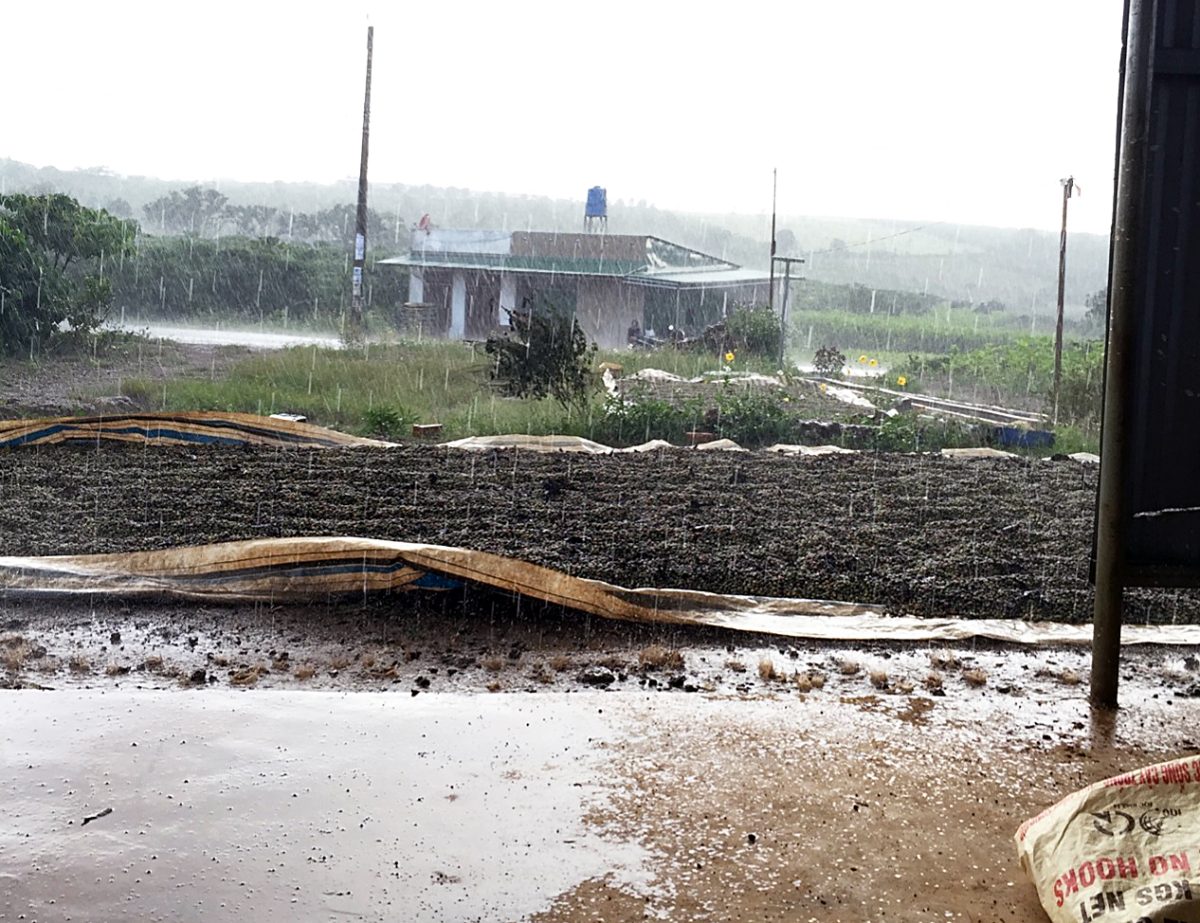
However, a pivotal moment came during a stormy afternoon when, after our interview, an elderly indigenous woman extended an invitation to stay in her cabin for tea until the rain subsided. What began as an offer for shelter from a downpour transformed into dinner and an eventual offer of extended lodging until the end of the rainy season. Subsequently, I observed a discernible shift in the village’s demeanor towards me. The hamlets that once viewed me with skepticism now exhibited genuine warmth and acceptance. Interviews evolved into collaborative discussions, invitations for communal meals became commonplace, and even the once-hostile village dogs began to greet me amicably. This surprising and puzzling transformation left me wondering what I had done right.
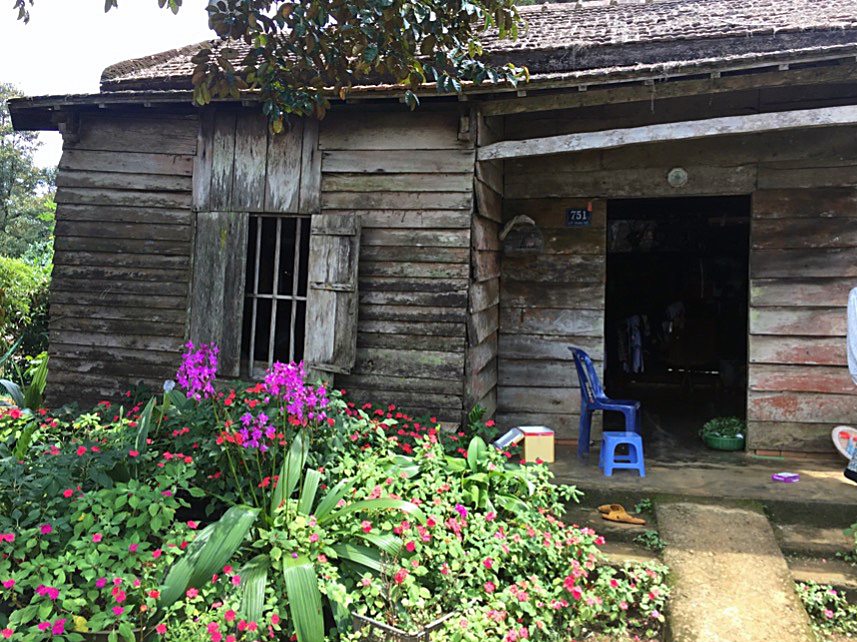
One evening chat with the neighbors unveiled the reasons. They remarked: “You are the first to willingly sit on the ground with us,” “You never flinched at our teacups,” and “Your sincere gratitude was told in your smile.” These seemingly mundane acts differentiated me from their past experiences with the Kinh, or other privileged groups. The revelation was bittersweet. Their longing for genuine respect—a right most take for granted—had often been unmet. This experience imparted a valuable lesson about the dynamics of trust and the essence of humility. To look down is to wield a superior gaze while bending down can seem patronizing. Genuine engagement is found in sitting side by side as equals. Much like observing a calm lake, our approach determines the reflection we behold.
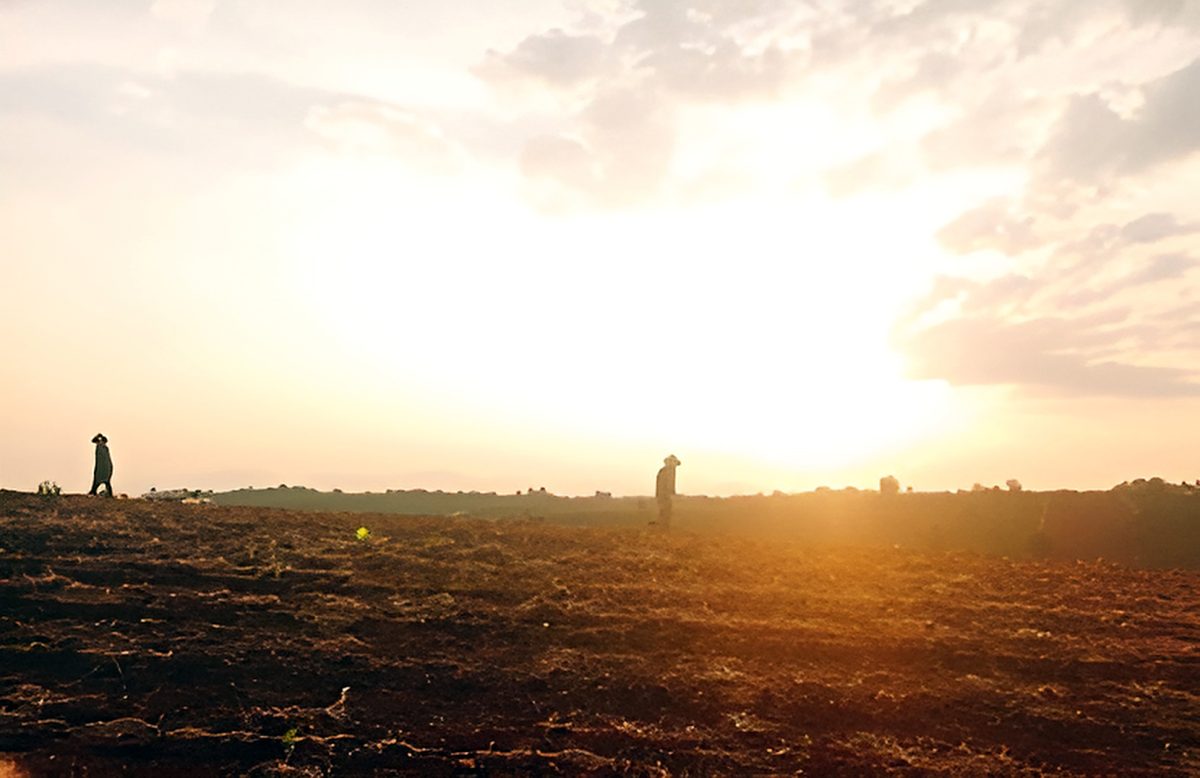
──Could you tell us about your ideal image of a researcher?
An ideal researcher is marked by a humility that acknowledges the endless scope for learning and growth. Calmness ensures steady navigation through the complexities of academic inquiry, focusing on tasks over accolades. An innate curiosity pushes one to delve deeper, seeking profound insights. Open-mindedness welcomes disruptive ideas and challenges past beliefs. Most crucially, the researcher avoids preconceived notions, valuing evidence over bias, reflecting a true dedication to the pursuit of truth. At the heart of an accomplished researcher lies a profound sense of gratitude. Academic pursuits are not solitary endeavors; they thrive upon the tangible and intangible contributions, trust, and investments of numerous individuals. It is crucial to recognize that the mere opportunity to engage in such scholarly activities is a privilege. This realization should constantly inform a researcher’s approach, anchoring their endeavors in a bedrock of empathy and selfless, altruistic thinking.
──Please tell us about the difficulties you faced in compiling the results of your research into a paper or book.
I have noticed a propensity in my writing to be somewhat overzealous in sharing my experiences from the field. This avidity sometimes overshadows the necessity for logical reasoning and brevity that scientific writing demands. My peers often humorously label me a “field story evangelist,” as someone who endlessly recounts tales from my fieldwork. In crafting drafts, particularly during the organization and analysis of findings from the field, I am driven by an urge to convey every nuance and detail I have witnessed to my readers. I yearn for every field story, no matter how minute, to be acknowledged. However, this methodology can sometimes cause me to become enmeshed in a web of intricacies, hindering my ability to delineate a coherent narrative thread grounded in the central theme. It poses a challenge to streamline the narratives so that they seamlessly integrate into academic discussions, serving not just as vivid recounts, but as substantiated contributions to scholarly dialogues.
──Please tell us about your must-have gears, or must-haves of research and writing.
My old backpack, which I even thanked in the acknowledgments of my doctoral thesis. My mom gave it to me in the second year of junior high school. It is both lightweight and durable. Whether commuting to school, traveling, or conducting fieldwork, it has been with me. It has carried my change of clothes from my high school boarding days, books and assignments, snacks and nutritious meals given by my family, various samples and detection equipment for plant and plot surveys, and gifts from friends and interviewees I met in the field. It has accompanied me across several continents, witnessing floating ice, grand waterfalls, conservation forests, remote villages, and coastal ends. It is my indispensable old companion and a source of comfort and security.
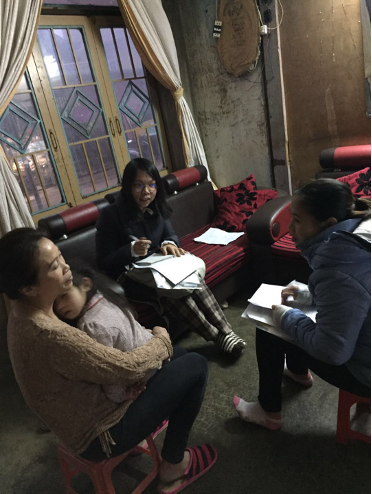
──Which books do you recommend for young scholars and why? Please tell us about the books that have particularly influenced you.
I strongly endorse Tuan Yi-Fu’s Romantic Geography for emerging scholars, as it transcends disciplinary boundaries. This tome is akin to an explorer’s continuous voyage driven by an insatiable curiosity about the world’s terrains. It adeptly weaves human subjectivity with the tangible geographical milieu, delving into human-environment interactions through a triad of lenses: philosophy, psychology, and anthropology. This work offers poetic elucidation and stands as a beacon of inspiration during rigorous academic endeavors. Another pivotal read is Tim Cresswell’s Geographic Thought: A Critical Introduction, which systematically elucidates geography’s diverse branches and ideologies. David Harvey’s recent The Anti-Capitalist Chronicles demystifies capital’s global dominance, highlighting post-2008 financial crisis maneuvers and the inherent contradictions of capitalism. It is instrumental in framing discussions on transnational investments. Finally, for a nuanced understanding of Vietnam’s intricate history and regional contexts, Christopher Goscha’s The Penguin History of Modern Vietnam is invaluable, spotlighting the nation’s internal regimes and the complexities arising from its rich ethnic tapestry.
──Please tell us your future ambitions.
While many are driven by the conventional aspirations of worldly success and admiration, my guiding ambition is to swiftly evolve into a person with the capacity for meaningful reciprocity. Owing to countless benefactors, I have journeyed significantly beyond my inception, beholding vistas often hidden from the general populace, and subsequently attaining the prestige and authority synonymous with a doctoral degree from a renowned institution. My aspirations are firmly rooted in my ability to give back to those who have showered me with kindness and support along this path—be it family, teachers, friends, or the strangers encountered during field research. This, arguably, is more of a strategic approach towards realizing my genuine ambition than a mere desire. The goal is to foster sustainable growth within these cherished relationships, a journey characterized by mutual reliance and reciprocal generosity, thereby nurturing a network of connections that thrive on symbiotic growth and development.
References
Cresswell, T. (2013). Geographic Thought: A Critical Introduction (Vol. 8). John Wiley & Sons.
Harvey, D. (2020). The Anti-capitalist Chronicles. London: Pluto Press.
Tuan, Y. F. (2013). Romantic Geography: In Search of the Sublime Landscape. University of Wisconsin Press.
Goscha, C. (2016). The Penguin History of Modern Vietnam. Penguin UK.
(September 12, 2023)
This article is also available in Japanese. »
「見知らぬ人々の善意で世界を知る」
呉昀熹さんインタビュー

